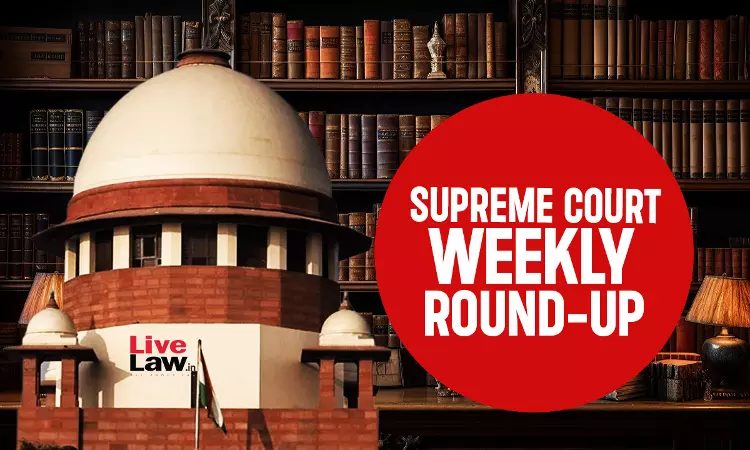Supreme Court Weekly Round-up: September 23, 2024 To September 29, 2024
Amisha Shrivastava
30 Sept 2024 7:35 PM IST

Next Story
30 Sept 2024 7:35 PM IST
Nominal IndexCitationsJust Rights For Children Alliance v. S. Harish Diary No.- 8562 - 2024 2024 LiveLaw (SC) 728Fulleshwar Gope v. UOI & Ors. 2024 LiveLaw (SC) 729Rabbu @ Sarvesh v. State of Madhya Pradesh, Criminal Appeal Nos. 449-450 of 2019 2024 LiveLaw (SC) 730Yogarani v. State By Inspector of Police, Criminal Appeal No. 477/2017 2024 LiveLaw (SC) 731Central Bureau of Investigation...
